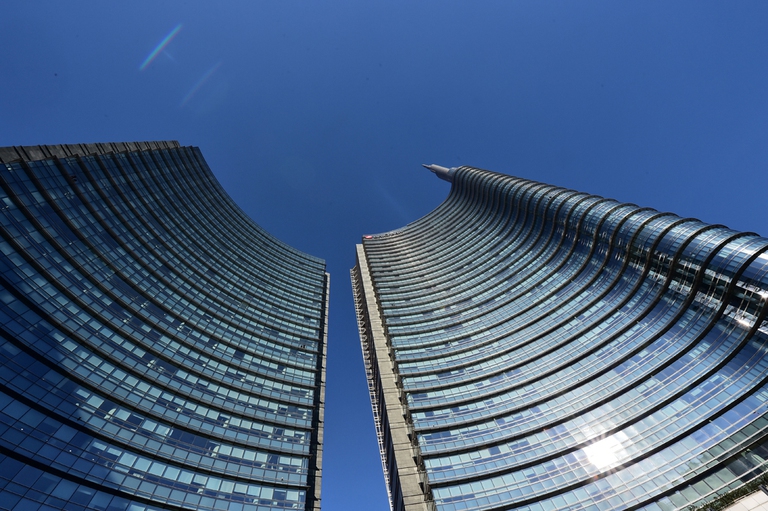
Shell’s board of directors is being taken to court by ClientEarth for failing to move away from fossil fuels fast enough.
Year after year, Italian companies are disappearing from the Dow Jones Sustainability Indices, a globally renowned tool to assess business ethics.
In September, as usual, it’s time for the Dow Jones Sustainability Indices review to be released. They’re one of the most important indices that assess sustainability practices in the world’s biggest publicly-traded companies that comply with the ESG (environmental, social and governance) criteria. It’s a time of disappointment for Italian companies: ENI, Unicredit and StMicroelectronics don’t appear neither in the World nor in the Europe index.
Considering that these three companies haven’t been included in the index this year, Italy is less and less represented. Intesa Sanpaolo, Telecom Italia and Atlantia are the only Italian companies listed in the “World” as well as “Europe” indices. In the former Leonardo-Finmeccanica is also included, while ENEL, Snam and Terna are included in the latter. There are also Fiat Chrysler Automobiles and CNH Industrial, which are now considered British, not Italian.
There are also many additions. The Spanish bank Bankia, the supermarket chain Carrefour, the oil company Total, the Finnish multinational company Nokia, the German energy supplier E.ON and its Spanish counterpart Iberdrola now appear in the World Index.
The Dow Jones Sustainability World Indices are one of the most renowned families of indices evaluating sustainability. It was launched in 1999 by the S&P Dow Jones Indices and RobecoSAM; its British counterpart is Ftse4good. It is based on the largest 2,500 global companies and chooses those that comply with certain ESG criteria. The companies voluntarily fill in an assessment questionnaire on their performance, which is then analysed by a consulting firm. The annual review is done in September, but every four months there’s a further assessment process. Over the years, the method attracted criticism: larger companies often have an efficient CSR department suggesting the right answers to the questionnaire.
Siamo anche su WhatsApp. Segui il canale ufficiale LifeGate per restare aggiornata, aggiornato sulle ultime notizie e sulle nostre attività.
![]()
Quest'opera è distribuita con Licenza Creative Commons Attribuzione - Non commerciale - Non opere derivate 4.0 Internazionale.
Shell’s board of directors is being taken to court by ClientEarth for failing to move away from fossil fuels fast enough.
India’s GDP could fall by 90 per cent by 2100 if climate finance isn’t improved. As the country tackles Covid, it mustn’t lose sight of sustainability.
We must give back to nature more than we extract. The European Union’s circular economy plan sets the guidelines to embrace this paradigm shift.
While Africa’s Covid-19 response has been praised by some, the pandemic has triggered the continent’s first recession in 25 years.
Much uncertainty remains in the transition period. Here’s what EU citizens living in the UK, and vice versa, should know about and expect from Brexit.
We must decide: in a post-Covid world, will we put emphasis on sustainability to achieve a green recovery or dust ourselves off and continue as before?
Businesses should evaluate the risks and opportunities of climate change and its mitigation to ensure their long-term resilience and success.
At the dawn of a new era, women in Japan still face old challenges: they’re paid less than men and struggle to scale the professional ladder. How can the impasse be broken?
Inequality has increased anywhere in the world despite substantial geographical differences, with the richest 1% twice as wealthy as the poorest 50%. The results of the World Inequality Report 2018.








